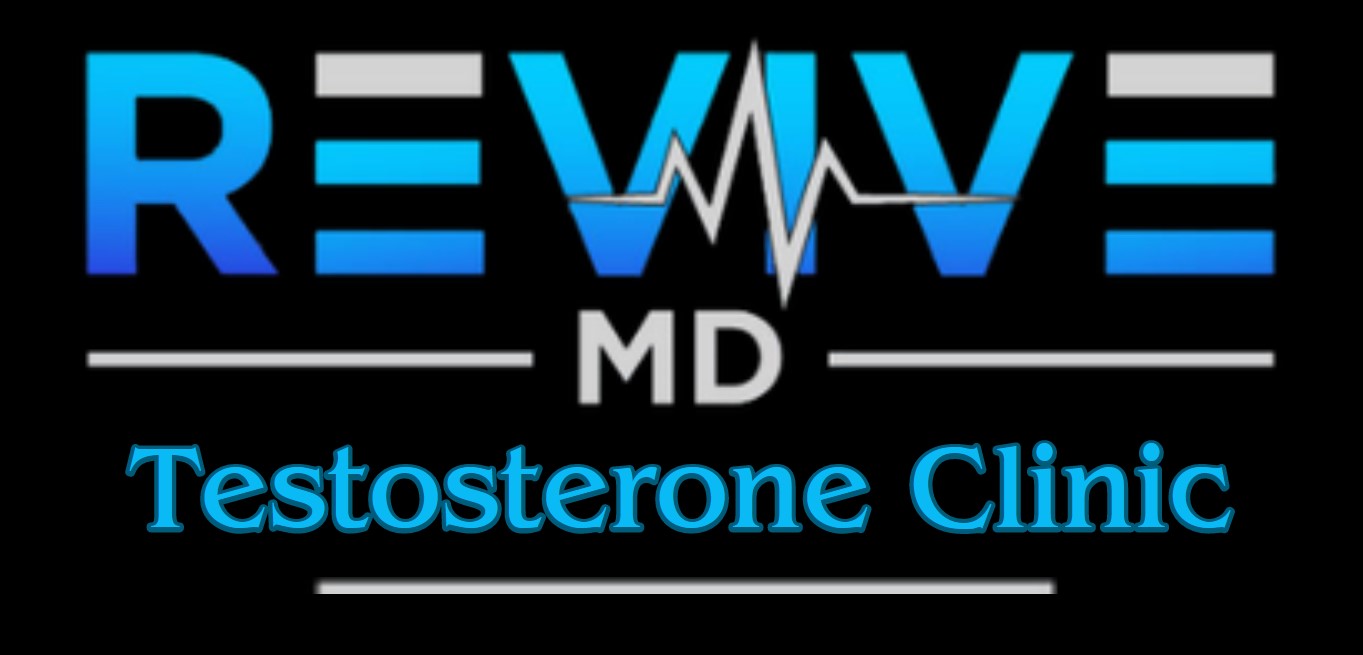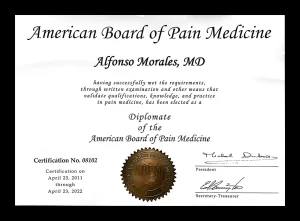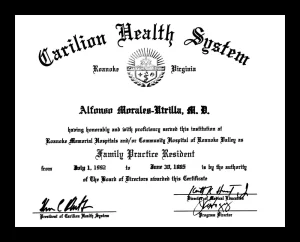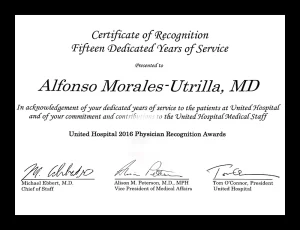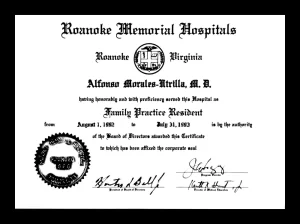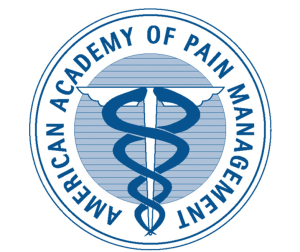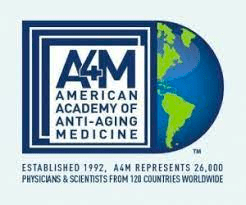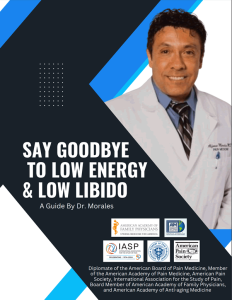REVIVE MD's TESTOSTERONE REPLACEMENT THERAPY CAN HELP WITH...
Watch These Quick Videos To Discover How Our Clinic Can Help You!
H.O.T
Hormone Optmization Therapy
Medical Weightloss
Safe and Effective Methods
Anti-Aging
Safe and Effective Methods
Meet Your Doctor (The BEST of The BEST)
Dr. Morales has been in the profession of pain management for almost 20 years. His dedication to his patients is evident in everything he does. Dr. Morales firmly believes in the importance of teaching patients about pain, addiction, and overall well-being, where it comes from, and what every individual can do to help manage or overcome pain. By doing this, he helps his patients live a happier, more functional, and active lifestyle, empowering them to take control of their pain and ultimately their overall health.
As the Medical Director of ReviveMD, Dr. Morales specializes in Pain Medicine. He is a Diplomate of the American Board of Pain Medicine and a member of the American Academy of Pain Medicine, American Pain Society, and International Association for the Study of Pain. As a guest speaker at numerous medical conventions and conferences, he has a passion for educating physicians, as well as patients, in the multimodal approach to the management of pain.
As a Board Certified Addiction Physician, he has presented at countless seminars, informing physicians and patients alike about the disease of addiction and the various treatment options available, including Suboxone (buprenorphine) and Vivitrol (naltrexone).
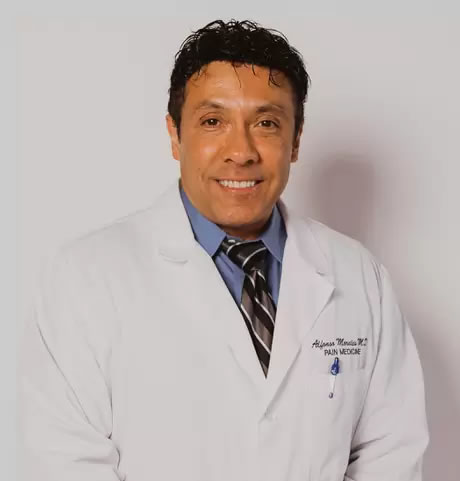
Personal information
Dr. Morales was introduced to the field of medicine at an early age, being the son of a renowned cancer surgeon. This upbringing helped him cultivate the compassionate aspect of medicine and understand the significance of a personal touch in patient care.
Dr. Morales earned his medical degree from La Salle University Medical School. He completed his internship at Carilion Roanoke Memorial Hospital, a tertiary care referral center serving a population of over one million people. Following this, he finished his residency at the Virginia Tech Carilion Family Medicine Program and became board-certified in Family Medicine. He then practiced in a rural area in Wisconsin, where he provided a wide range of medical services, including hospital care, outpatient services, emergency room care, and surgical procedures.
In 2000, Dr. Morales relocated to the Twin Cities to establish his own practice, ReviveMD, with a focus on personalized and comprehensive care in pain medicine. By 2002, he became a Diplomate of the American Board of Pain Medicine. In 2004, he was among a select group of physicians to receive certification and a waiver to prescribe Suboxone/Buprenorphine for the treatment of opioid dependence and addiction.
Passionate about the intersection of pain and addiction, Dr. Morales is also board-certified in addiction medicine. He is committed to prevention and treatment through innovative modalities. In his leisure time, Dr. Morales enjoys playing soccer, tennis, and ballroom dancing, as well as traveling with his family.
**DON'T FORGET TO DOWNLOAD YOUR FREE E-BOOK**
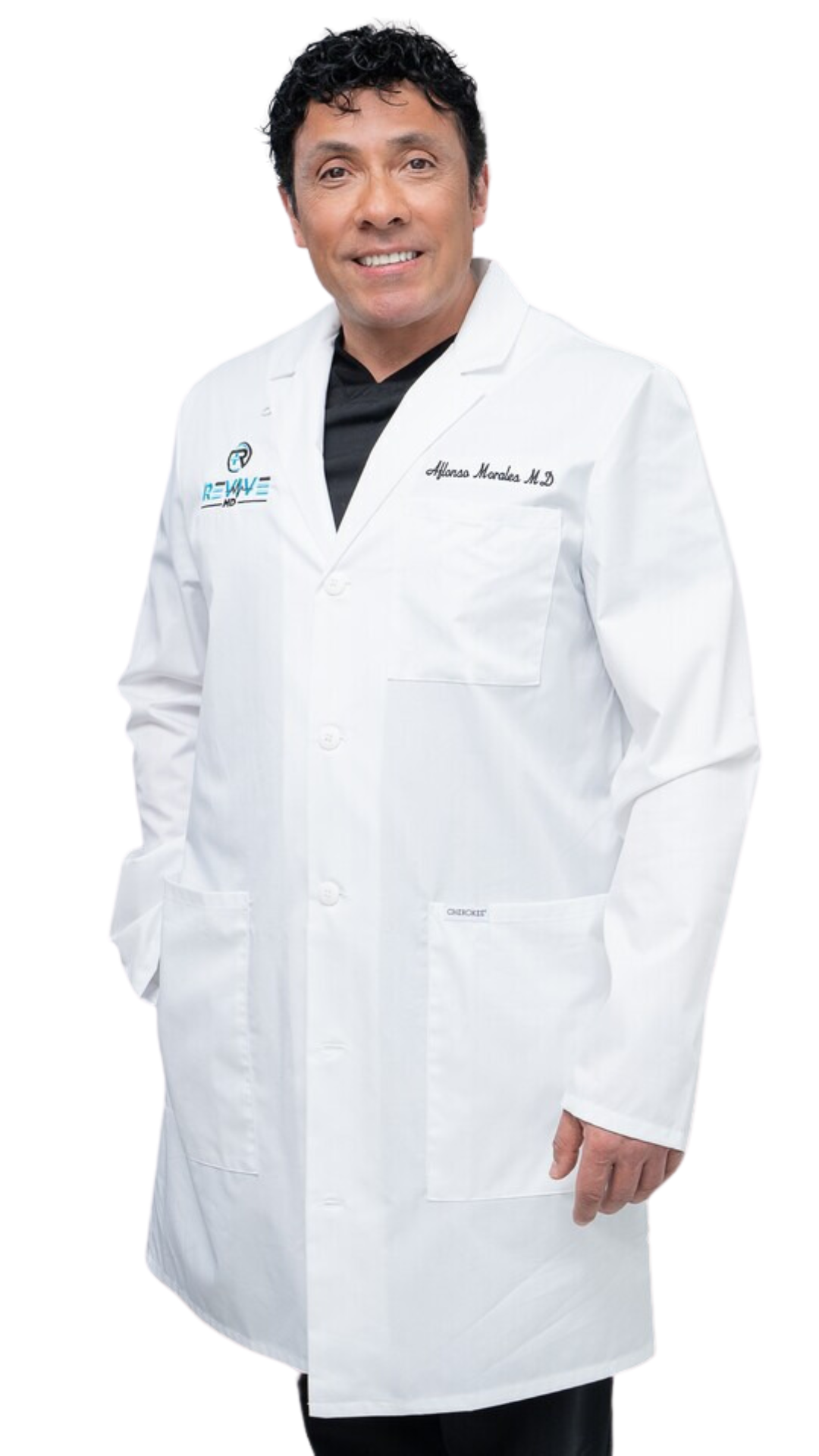
WHY IS HORMONE OPTIMIZITION THERAPY NEEDED?
Many people believe that only older men experience symptoms of low testosterone, but this is a common misconception. In fact, after the age of 30, men’s testosterone levels begin to decline gradually every year. Low testosterone can affect a man’s libido and bone mineral density, and it can even lead to erectile dysfunction.
Even men with average testosterone levels should consider optimizing their hormones at a local low testosterone clinic. Studies have shown that testosterone therapy can result in increased libido, sexual function, and sexual desire. Additionally, undergoing TRT therapy at a hormone specialist near you can lower your risk for cardiovascular disease and diabetes, improve your mood and cognition, and increase your muscle mass.
You may be wondering if there is a low testosterone clinic near you that can help address your concerns. The idea of seeking out male testosterone therapy can be intimidating, but it is a non-invasive medical treatment that is typically administered in cycles. Male hormone replacement therapy is often paired with a diet and exercise plan to maximize its effectiveness and help your body naturally increase its own testosterone production. Some patients begin to see results in as little as 2-5 weeks after starting treatment, while others may take a few months to experience the full benefits of hormone replacement therapy.

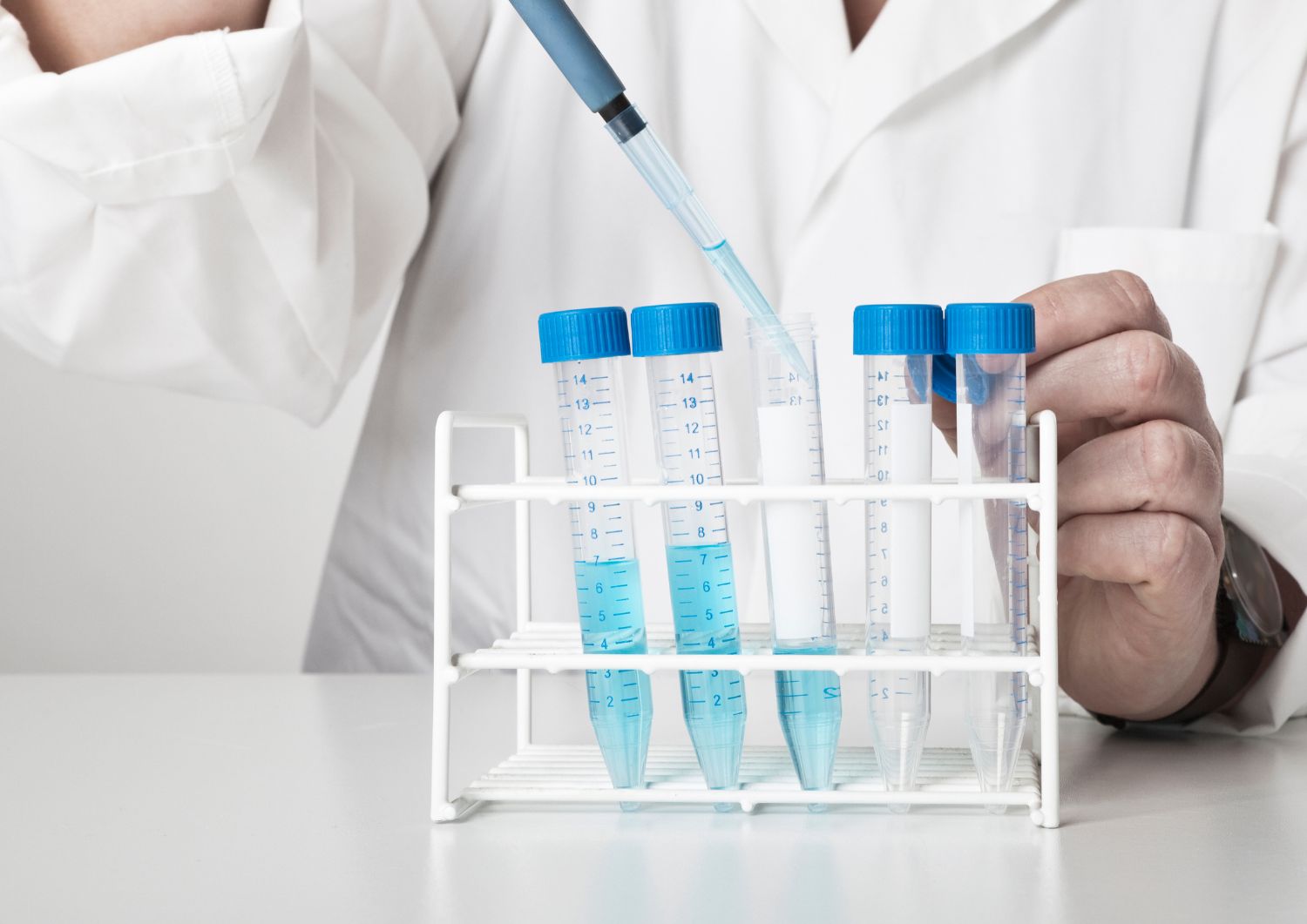
How Much Does Hormone Replacement Optimization Cost In The Twin Cities Area?
You may be curious about the cost of men’s hormone therapy near you. Your first visit to our men’s health clinic will involve an initial consultation and a physical exam, which has a flat rate of $400. The cost of treatment after the consultation will depend on your unique hormone requirements, individual treatment plan, and the length of the therapy.
Blood work and diagnostic tests associated with testosterone replacement therapy are usually covered by most insurance companies, depending on your coverage and whether the doctors are in your network. However, the actual cost of testosterone treatments is not covered by insurance. Alternatively, flexible spending benefits can be used as a payment option, but our Clinic locations are not able to file these claims.
Do YOU Have Low Testosterone???
When testosterone levels are low, it can have various effects on the body. Common symptoms of low testosterone include weight gain, fatigue, loss of libido, mood disturbances, and hair loss.
Testosterone is involved in many bodily processes and impacts almost every organ system. It affects metabolism by regulating caloric intake and promoting muscle protein synthesis. Low testosterone can lead to an increase in abdominal fat, which can further lower testosterone levels and increase estrogen production in males.
One of the main reasons for decreased testosterone production is aging.
Research indicates that testosterone levels in males drop by 1-2% every year after the age of thirty. Additionally, low testosterone levels have been linked to chemical imbalances in the brain, which may explain why men with low testosterone often report symptoms such as low libido, fatigue, and mood disturbances.
Recent studies have shown that testosterone replacement therapy can be an effective treatment for mild depression. Two separate studies, conducted by researchers at Saint Louis University and the Kobe University Graduate School of Medicine in Japan, found positive results from this type of therapy.
10 Signs That You Might Have Low Testostorne

- Weakness and Muscle Loss even when doing activities that never got you tired.
- Mood Disturbances and Decreased Pleasure from activities you once enjoyed:
- Decreased Libido: Not ever being “in the mood” anymore
- Increased Abdominal fat – not being able to lose weight like you used to
- Brittle Bones or Risk Of Fractured breaks more common than before
- Decreased Muscle Tone or Strength
- Thinning Hair or Hair Loss
- Erectile Dysfunction or Pre Ejaculation
- Decreased Semen production and Testicular Shrinkage
- More Stress / Overwhelmed or Hot Flashes
Hormonal imbalance affects both men and women, with women experiencing it more commonly during the latter stages of life. However, older men may also experience symptoms of low testosterone, such as decreased muscle mass and memory loss.
Fortunately, modern technology and science have provided a solution to this problem. Hormone replacement therapy (HRT) is a treatment that can help men restore their testosterone levels to optimal standards. If you’re a man over 30 experiencing symptoms of hormonal imbalance, it may be time to consult with your physician about male hormone therapy.
HRT helps restore and maintain a man’s hormone balance by utilizing natural or synthetic hormones to replenish the loss of hormones naturally produced by the human body.
With HRT, men can increase their testosterone levels and improve muscle mass, energy, and libido. Several forms of HRT for men may be prescribed depending on the treatment plan. Before comparing the costs of various hormone therapy clinics, it may help to know about your potential options to decide how to start hormone replacement therapy. Knowing your options can help you find the best treatment to fit your therapy plan and budget.
Men may be presented with various forms of hormone replacement therapy depending on their condition. Four common treatment programs are:
- Bioidentical Hormone Therapy
- Testosterone Replacement Therapy
- Peptide Therapy
- HGH Therapy
Understanding how each of these HRT programs works is crucial in deciding how to start hormone replacement therapy.
Bioidentical hormone therapy (BHRT) is a type of hormone replacement therapy that is becoming increasingly popular among men. BHRT uses hormones that are derived from plant estrogens and are identical in chemical structure to those naturally produced by the body. These hormones are typically compounded by a pharmacist, who can create a customized treatment plan based on the individual needs of the patient.
One of the main benefits of BHRT is that it can be delivered in a variety of forms, including pills, patches, creams, gels, and injections. This allows patients to choose a delivery method that is most convenient and comfortable for them.
BHRT is often used to treat symptoms of hormonal imbalances, including fatigue, low libido, and weight gain. In addition to these benefits, BHRT may also help to reduce the risk of osteoporosis, heart disease, and certain types of cancer.
Testosterone replacement therapy (TRT) is a treatment that can help men restore their testosterone levels to the normal range. The male hormone is responsible for developing male characteristics such as muscle mass, body hair, and deep voice, and is important for bone strength and sexual function. Low testosterone levels can cause fatigue, mood swings, decreased muscle mass, and sexual dysfunction.
There are several types of testosterone supplements available for TRT, including pills, gels, injections, and patches. Testosterone pills are not widely used as they can cause liver toxicity and may not be effective in increasing testosterone levels. Testosterone gels and patches are applied daily to the skin and are absorbed into the bloodstream. These options can be convenient for men who prefer non-invasive treatment methods.
However, testosterone injections are considered the most effective form of treatment as they deliver testosterone directly into the bloodstream. Injections are typically administered every two to four weeks, depending on the patient’s testosterone levels and response to treatment. It’s important to note that testosterone replacement therapy should be closely monitored by a healthcare provider.
Peptide therapy is a cutting-edge treatment used to address a wide range of health conditions. Peptides are chains of amino acids that occur naturally in the body and play a vital role in various bodily functions. Peptide therapy works by supplementing these naturally occurring peptides with synthetic versions to help promote healthy cellular function and bodily processes.
There are various types of peptides that are commonly used in peptide therapy, such as growth hormone-releasing peptides (GHRP), which stimulate the production of human growth hormone, and tissue repair peptides (TRP), which aid in the repair and regeneration of damaged tissue.
One of the main benefits of peptide therapy is its ability to target specific areas of the body, which allows for more effective treatment of specific conditions. Peptide therapy has been shown to be effective in treating a variety of conditions, including chronic fatigue syndrome, fibromyalgia, and autoimmune disorders.
Peptide therapy is typically administered through injections, but it can also be administered through topical creams or oral supplements. The treatment protocol is tailored to each individual’s specific needs, and the dosage and frequency of administration are adjusted accordingly.
Human Growth Hormone HGH therapy can provide numerous benefits, including increased bone density, which can help reduce the risk of fractures and bone-related diseases such as osteoporosis. HGH therapy can also help increase muscle mass, leading to improved strength and endurance. Patients may also experience a reduction in body fat as a result of increased muscle mass.
In addition to these physical benefits, HGH therapy has been shown to improve cognitive function and memory in some patients. It can also help improve exercise ability, allowing patients to be more active and engage in physical activities that were previously difficult.
F.A.Q
Hormonal imbalance is a prevalent medical condition that occurs when the body stops or reduces the production of specific hormones. Although its presence is subtle, it can cause minor complications such as fatigue, sweating, weight gain, and decreased sexual function.
Many adults attribute their health problems to aging and ignore the signs until their condition worsens, making it necessary to seek medical treatment.
No. So far, hormone replacement therapy has not been shown to cause cancer. Studies have shown that hormone replacement therapy can actually decrease the risk of certain cancers and can even be used to treat prostate cancer.
Yes. Men with low testosterone are also at higher risk for Type 2 diabetes, so using HRT to increase testosterone levels to normal standards can help with insulin resistance and glycemic control.
Hormone replacement therapy is an ongoing treatment that is typically long-term and, in some cases, indefinitely. You should discuss your treatment process with your doctor to determine how long you may need hormone replacement therapy.
Declining hormone levels can lead to several noticeable minor complications that can drastically alter your lifestyle. The most common symptoms include:
- Joint pain
- Decreased sexual performance
- Memory loss
- Confusion
- Low sperm count
- If you experience any of these symptoms, you may need to discuss hormone replacement therapy options with your doctor.
Yes, hormone replacement therapy is FDA approved and considered a safe treatment for men with low hormone levels.
As with any new medical treatment, it may take some time for your body to adapt to hormone replacement therapy. Typically, it takes around six to eight weeks for your body to fully adjust to the medication. However, you can start experiencing the benefits of HRT after four to six months of consistent treatment. It’s important to be patient and consistent with your treatment to achieve the best results. Your doctor can give you a better idea of what to expect and when to expect it based on your individual needs and hormone levels.
The initial step to begin the Testosterone Replacement Therapy (TRT) process is to obtain a complete health and hormone bloodwork panel. We can assist you in setting this up in a matter of minutes over the phone. After receiving the results, we will arrange a consultation with one of our doctors. During this consultation, the doctor will review your symptoms, treatment goals, medical history, and bloodwork results to develop a TRT program that is tailored to your specific needs. To get started, simply give our office a call.
Enim adipiscing commodo vestibulum condimentum parturient vulputate gravida phasellus scelerisque tellus lobortis scelerisque hac metus tincidunt mi.
Vestibulum vestibulum parturient inceptos scelerisque neque a facilisis posuere sem ullamcorper scelerisque ac.
